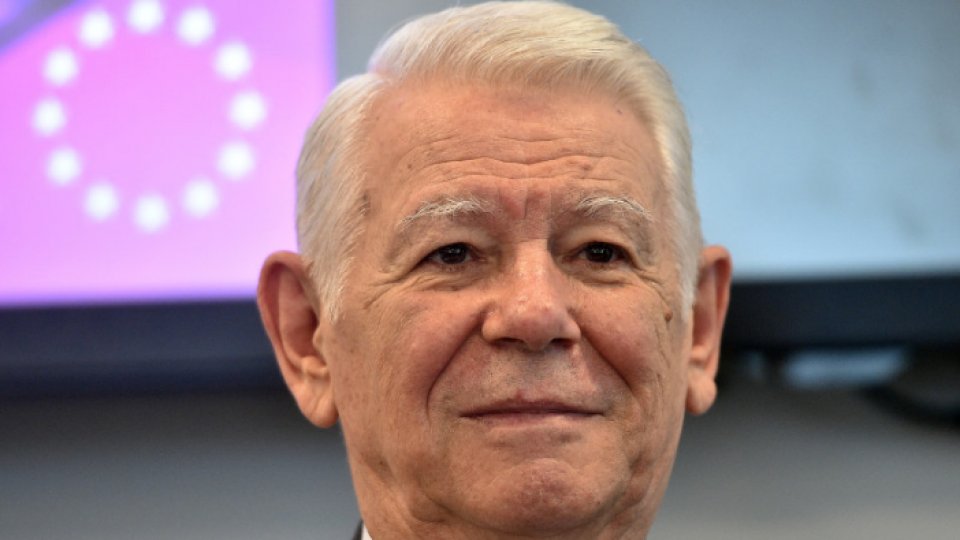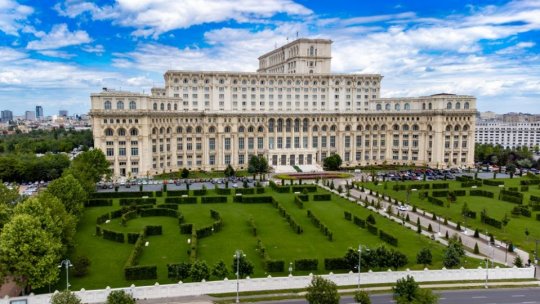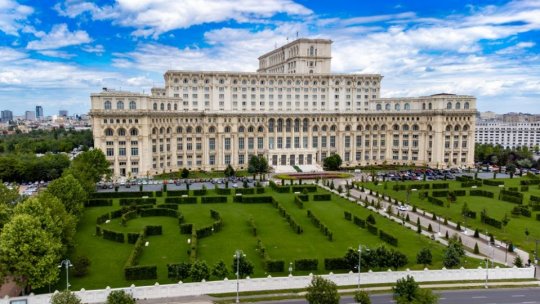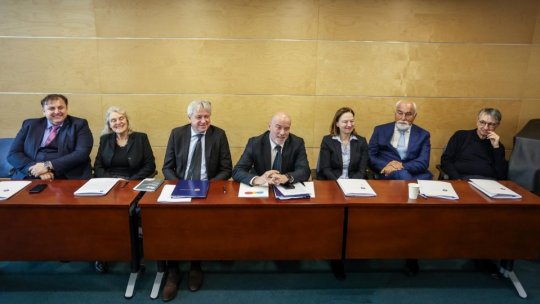Romanian EU Presidency "will promote Eastern Partnership, Western Balkans"
Teodor Meleșcanu: Our vision is not that of a Europe surrounded by high walls.

Articol de Radiojurnal, 02 Ianuarie 2019, 20:30
Romanian Presidency of the European Union Council will promote, through special meetings, the Eastern Partnership and the Western Balkans. There can be no European security without stability of the enlargement perspective, Romanian Minister of Foreign Affairs, Teodor Meleșcanu, said in an interview offered to RRA Reporter Carmen Gavrilă.
Teodor Meleșcanu: Our vision is not that of a Europe surrounded by high walls, within which we develop relations of all kinds between the EU Member States. Romania believes that Partnership policies constitute a key element for security and development of relations between the European Union and other states. For us, Eastern Partnership will be one of the priorities. We hope to hold an event in Brussels, perhaps during our Presidency, in which we also adopt a political statement if it is possible to mark the 10th anniversary since launch of the Eastern Partnership policy and to use this opportunity to convey ideas and encouragement for the development of this policy. Our point of view is to try to focus on concrete projects within the Eastern Partnership. In fact, there is also a concern with 20 concrete projects, which are part of the Eastern Partnership. It is important that they are also funded.
RRA Reporter: It is important to have the French-German support.
Teodor Meleșcanu: We will do everything in our power to facilitate adoption of conclusions as favorable as possible that can offer perspectives both to the Eastern Partnership countries and the Western Balkan countries to become EU Member States in the future.
Eastern Partnership (EaP)
Eastern Partnership (EaP) is a joint initiative involving the EU, its Member States and six Eastern European Partners: Armenia, Azerbaijan, Belarus, Georgia, Republic of Moldova and Ukraine. It is a specific dimension of the European Neighborhood Policy. Eastern Partnership aims at building a common area of shared democracy, prosperity, stability and increased cooperation. Additionally, bonds forged through the Eastern Partnership help strengthening state and societal resilience: it makes both the EU and the partners stronger and better able to deal with internal and external challenges. Tangible results for citizens are at the center of EU engagement within the Eastern Partnership. The pursuit of tangible results has resulted in 20 deliverables of Eastern Partnership cooperation for 2020. These were developed in close consultation with all the stakeholders. Some of the most important deliverables include:
• Modernized transport connections through the TEN-T network;
• Increased political ownership of energy efficiency;
• Easier access to finance for SMEs, including to lending in local currency;
• Establishing ways of reducing roaming tariffs between partners by conducting a study;
• Increased trade opportunities;
• Greater outreach to grassroots Civil Society Organizations; and,
• More support for youth.
EU Engagement in the Western Balkans
The European Union has long supported its partners in the Western Balkans on their respective integration paths, and the European Council reaffirmed its unequivocal support for the European perspective of the Western Balkans on 9 March 2017. EU support for and cooperation with its partners in the region delivers concrete benefits today: fostering economic development to create jobs, opportunities to travel and to study abroad, improvement of governance and rule of law, strengthening good neighborly relations, and regional cooperation. Stabilization and Association Agreements have entered into force for all six partners: Montenegro, Serbia, Former Yugoslav Republic of Macedonia, Albania, Bosnia and Herzegovina and Kosovo.
Source: RRA, European External Action Service (EEAS).Translated by Miruna Matei













